What Is PСM: a Dive Into eCommerce Product Management
Whether you're a budding eCommerce entrepreneur, a seasoned digital marketer, or a curious learner in the world of online retail, this guide promises to equip you with the knowledge and tools to excel in the dynamic world of Product Content Management.

Welcome, eCommerce enthusiasts from all around the globe! In today’s digital marketplace, where competition is fierce and consumer attention is fleeting, the mastery of Product Content Management (PCM) has become more than just a necessity – it's the cornerstone of e-commerce success. This article is your gateway to understanding PCM in all its facets.
So, let's dive in and unravel the mysteries of PCM, transforming your products from mere listings to compelling stories that sell!
Table of contents
- What Is Product Content Management (PCM)?
- Product Content Management Benefits
- Features of a PCM System
- PIM Vs. PCM: What’s the Difference?
- Complement your PCM with a PIM system
- Wrapping Up
What Is Product Content Management (PCM)?
So, what exactly is PCM, and why does it hold such significance in the online marketplace?
PCM is the backbone of any eCommerce operation, which involves the creation, management, and distribution of all product-related content across various digital channels.
In other words, PCM is like a digital catalog, where a harmonious blend of detailed product information, including descriptions, specifications, images, and videos, combined with creative marketing elements that make each product stand out.
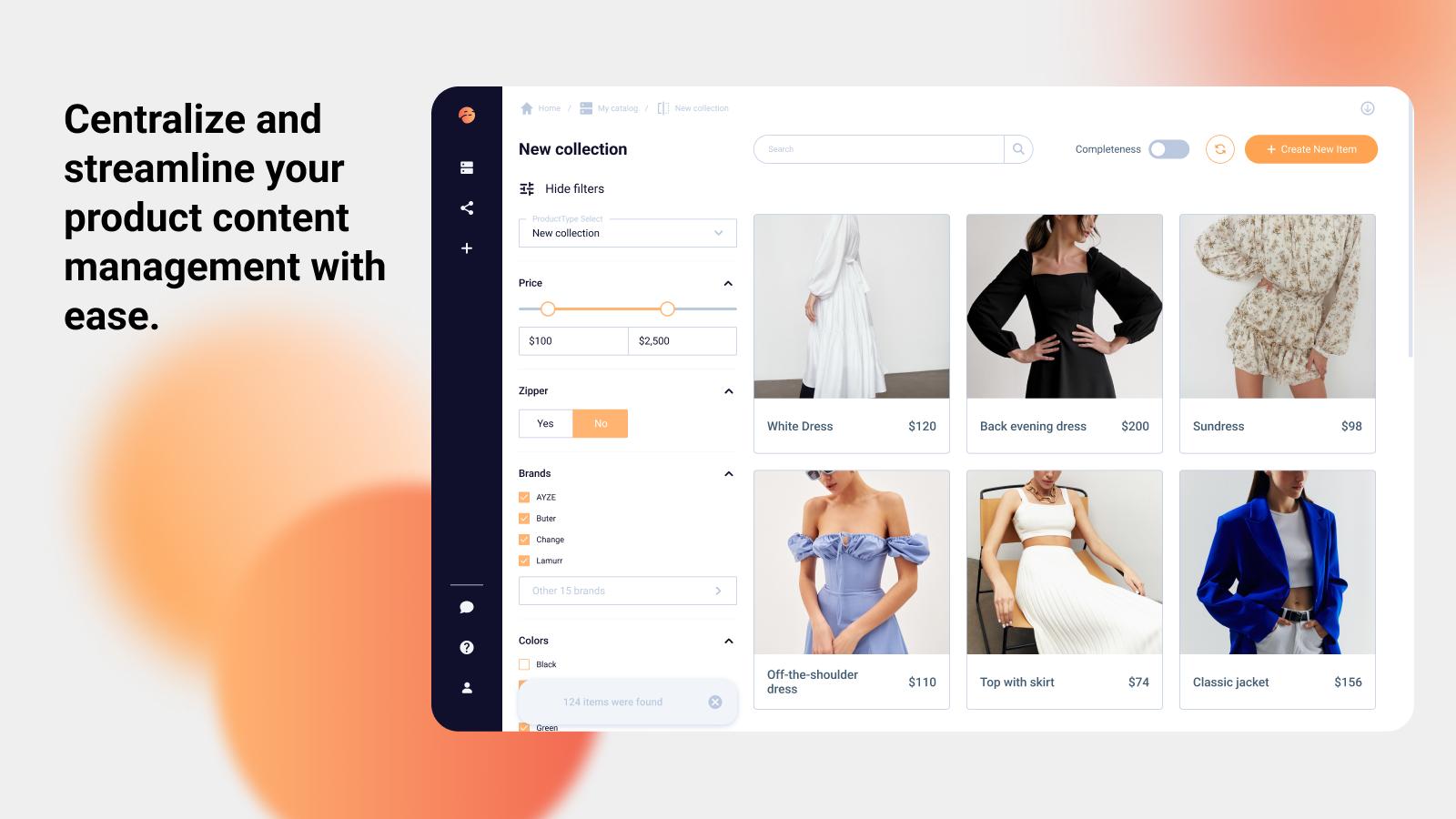
Imagine walking down a bustling market street – what catches your eye? The same principles apply in PCM - it is about presenting your products in a way that captivates and engages your online audience. It's an art and a science that involves crafting compelling product narratives, ensuring accuracy in specifications, and delivering a seamless and enriching shopping experience.
A significant aspect of PCM is ensuring consistency and accuracy of product information across various platforms – be it your website, online marketplaces, or social media channels.
What’s important, PCM goes beyond just presenting information. It's also about optimizing content for search engines, enhancing product discoverability, and ensuring your products are just a click away from potential buyers.
In essence, PCM is about crafting a story around your products that resonates with your audience, drives engagement, and ultimately, sales. As we delve deeper into PCM, we’ll uncover its multifaceted role in shaping the customer journey and driving eCommerce success.
The Transformative Benefits of Product Content Management
Now, let’s delve into the benefits that PCM brings to eCommerce business:
- Better Product Visibility: PCM plays a pivotal role in enhancing product visibility online. By meticulously curating product information and ensuring it's well-optimized for search engines, PCM makes products more discoverable, attracting a wider audience and driving more traffic to your site.
- Boosted Sales: At the heart of PCM is its ability to directly influence sales. High-quality, engaging, and detailed product content not only captivates potential customers but also provides them with the necessary information to make informed purchase decisions, leading to increased conversion rates.
- Scaling New Business Heights: PCM equips businesses with the agility to scale effortlessly. Whether it's expanding the product range or venturing into new markets, PCM ensures that managing and updating product content across various platforms remains streamlined and efficient.
- Time Optimization: Time is of the essence in eCommerce, and PCM is a time-saver. By centralizing product information management, businesses can significantly reduce the time and effort spent on updating and distributing product content, freeing up valuable resources to focus on other growth-driving activities.
- Consistency Across Channels: PCM ensures that regardless of where your products are listed – be it your eCommerce site, marketplaces, or social media – the information remains consistent and accurate. This uniformity builds trust and credibility among customers.
- Enhanced Customer Experience: Detailed and accurate product information, facilitated by PCM, leads to a better understanding of products by customers. This transparency reduces return rates and increases customer satisfaction and loyalty.
- Data-Driven Insights: PCM systems can provide valuable insights into what content performs best, helping businesses to continually optimize their product listings for maximum impact.
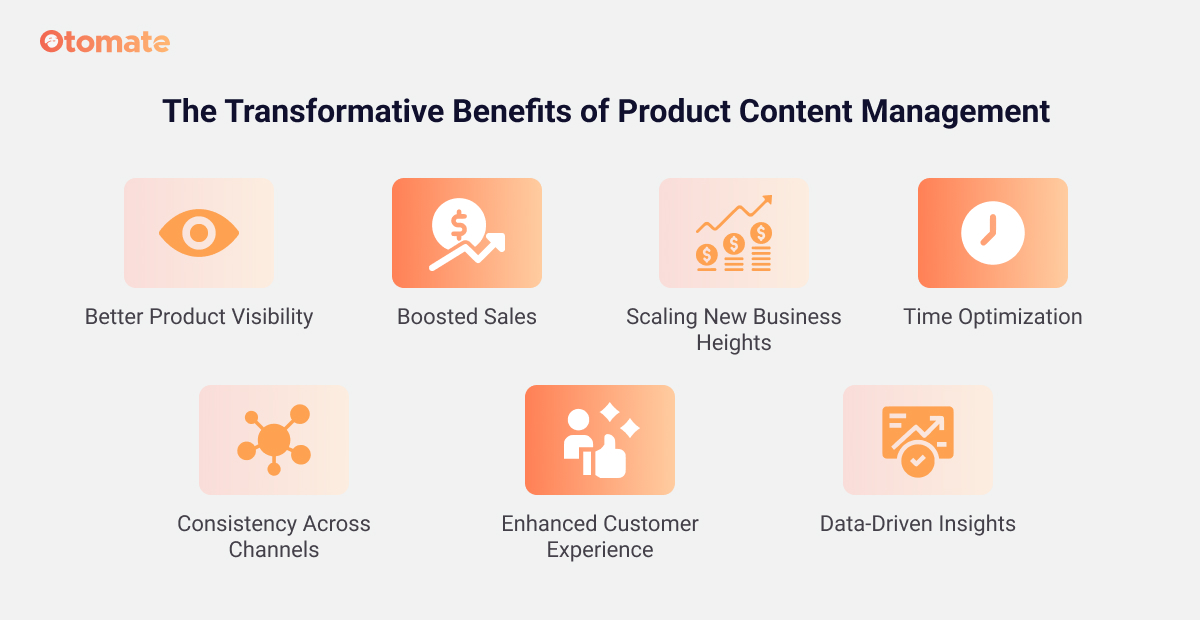
Thus, PCM emerges not just as a tool, but as a strategic asset that empowers businesses to shine brighter in the digital marketplace, drives sales growth, and streamlines operations for sustainable scalability. What’s also important, with ever-changing market trends and consumer preferences, PCM allows businesses to quickly update and adapt their product content, staying relevant and competitive.
Features of a Product Content Management (PCM) System
Now, that we’ve learned the basics, we’re ready to dive into some of its key PCM functionalities:
- Robust Data Management for Products: At the heart of a PCM system lies its ability to adeptly manage vast arrays of product data. This includes organizing, storing, and retrieving detailed product information such as descriptions, specifications, pricing, and imagery. This central repository, just like at Otomate product management system, ensures data is always accessible and up-to-date.
- Streamlined Product Publishing: A modern PCM system greatly simplifies the process of publishing product information across various channels. Whether it's your eCommerce platform, marketplaces, or social media, the system ensures consistent and timely product content delivery, making omnichannel marketing more efficient.

- Efficient Product Lifecycle Management Workflows: PCM systems come equipped with tools to manage the entire lifecycle of a product, from inception and design through to sales and beyond. These workflows ensure that each stage of the product lifecycle is monitored and managed effectively, facilitating smoother transitions and quicker time-to-market.
- Enhanced Collaboration and Communication: Good PCM systems like Otomate foster collaboration by allowing teams to work together seamlessly, regardless of their location. Features like version control, role-based access, and real-time updates ensure that everyone is on the same page.
- Customization and Scalability: As businesses grow, their PCM systems should be able to grow with them. Modern PCM solutions offer customization options and scalability to adapt to evolving business needs, supporting a wider range of products and more complex organizational structures.
- Rich Media Management: A PCM system isn't just about text. It often includes robust capabilities to manage and distribute rich media content like images, videos, and PDFs, ensuring that visual assets are as meticulously managed as textual information.
- Analytics and Reporting: Insightful analytics and reporting tools are an integral part of a PCM system, providing valuable insights into product performance, content quality, and customer engagement. These insights aid in making data-driven decisions for content optimization and strategy refinement.
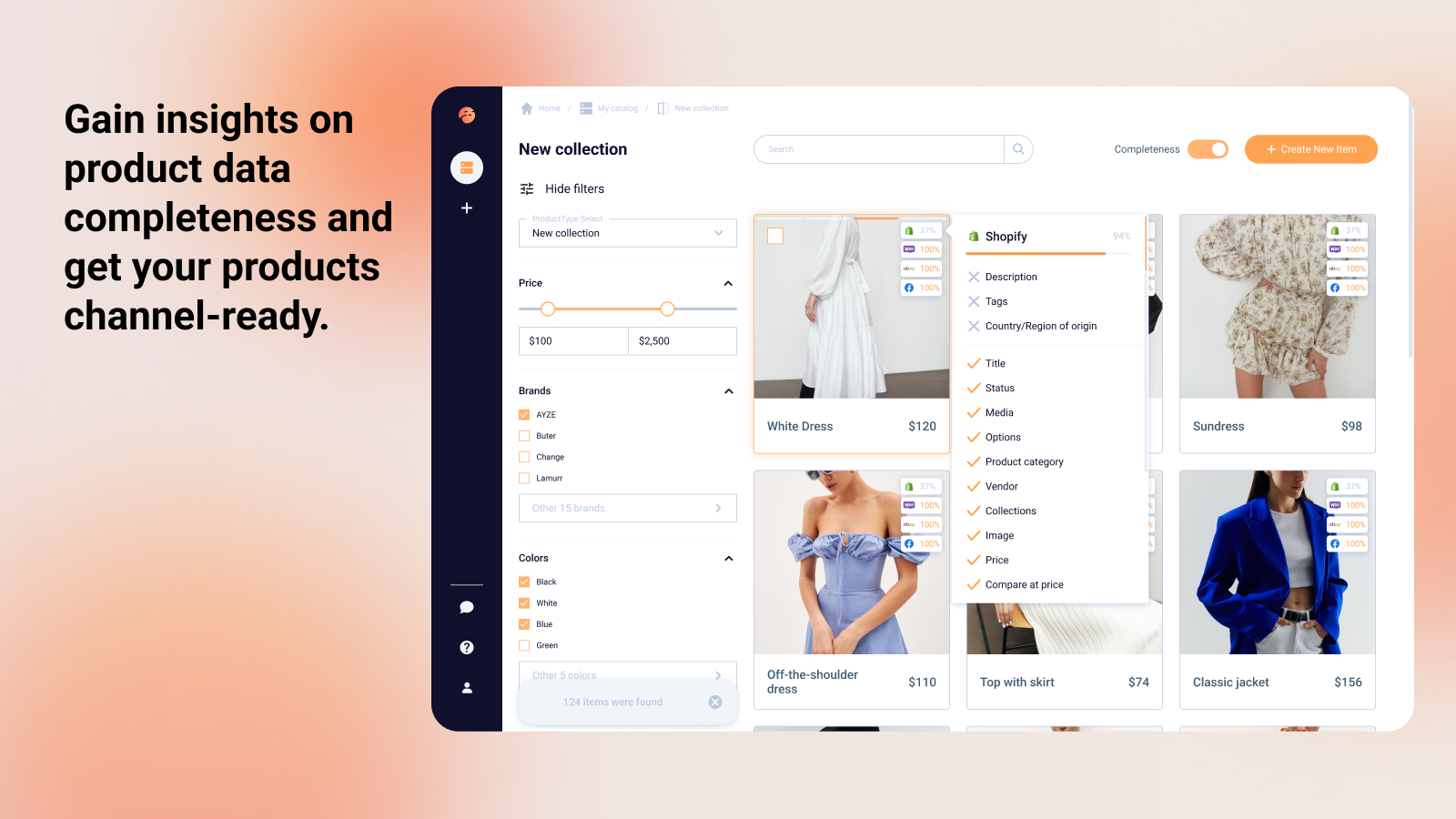
- Multi-Language and Localization Support: For businesses operating globally, a PCM system offers multi-language support and localization capabilities, ensuring that product content is relevant and accessible to a diverse, international audience.
- SEO Optimization Tools: Recognizing the importance of search engine visibility, many PCM systems include SEO optimization tools to help ensure that products are easily discoverable online.
PIM Vs. PCM: What’s the Difference?
As we delve further into the world of eCommerce, two acronyms frequently emerge – PIM (Product Information Management) and PCM (Product Content Management). Understanding their distinct roles is crucial for any eCommerce enthusiast.
PIM systems primarily focus on managing all aspects of product information. This includes a comprehensive aggregation, organization, and distribution of product data such as technical specifications, dimensions, manufacturing details, and supplier information.
In other words, PIM acts as a centralized hub for all product-related information, crucial for ensuring data consistency across various sales and marketing channels.
While both PIM and PCM are integral to managing product information, their focus areas differ:
- Scope of Data Management: PIM systems concentrate on the broader aspects of product information, dealing with the core data essential for product identification and classification. In contrast, PCM extends to managing detailed content that enriches product information, such as marketing descriptions, rich media, customer reviews, and SEO details.
- Purpose and Application: PIM serves as the foundational system for managing technical product information essential for business operations, supply chain management, and compliance. PCM, on the other hand, is more focused on the customer-facing aspect, enhancing product descriptions and imagery to boost engagement and sales.
- Integration with Marketing: While PIM provides the basic product details necessary for any sales channel, PCM is more intricately tied to marketing and sales strategies. It plays a pivotal role in how products are presented and perceived by customers, impacting the overall shopping experience.
- Content Customization: PCM offers more in terms of content customization and personalization, catering to various customer touchpoints and demographics. PIM, while versatile, is more about maintaining a consistent and accurate product database.
- User Experience Focus: PCM is geared towards enhancing the user experience, providing enriched content that helps in making informed purchase decisions. PIM, while it indirectly affects customer experience, is more focused on streamlining internal processes and data consistency.
Let’s now see how PCM and PIM peculiarities are compared with each other in a table:
Complement your PCM with a PIM system
As we can see, managing product content effectively is paramount for success. This is where the integration of a Product Content Management (PCM) system with a Product Information Management (PIM) tool like Otomate becomes essential.
While PCM focuses on the aesthetics of product presentation, a PIM system like Otomate delves into the technical side. It scrutinizes the quality of content, spots errors, and ensures data accuracy and consistency across all channels. With its robust analytical capabilities, the Otomate PIM system ensures that the product information is not just visually appealing but also technically sound.
Otomate simplifies managing product listings across multiple sales channels and ensures that all products are consistently updated and in sync, irrespective of where they are sold, streamlining brands’ online presence.
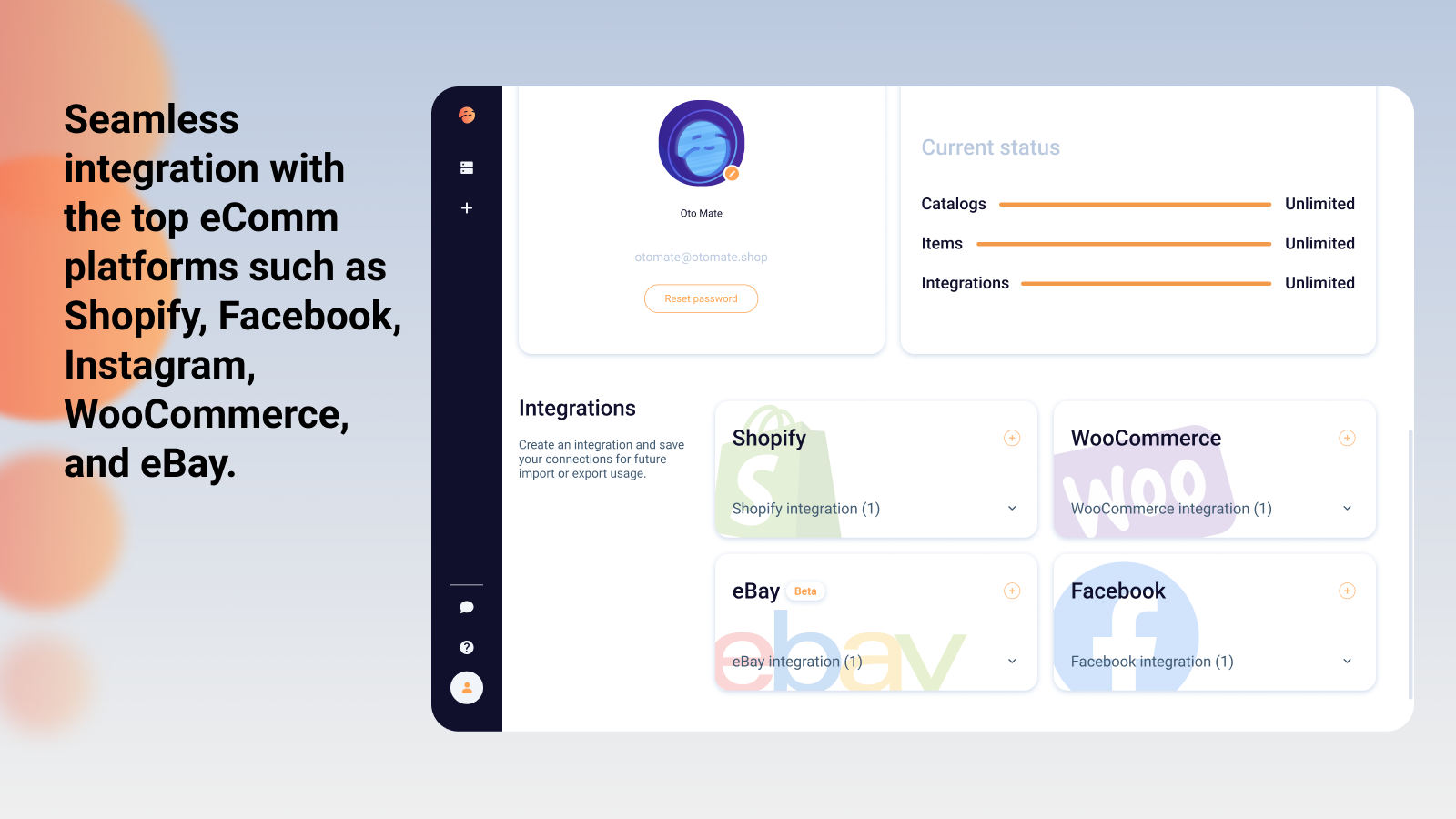
We at Otomate recognize that editing products one by one can be a tedious task. That’s why Otomate brings the convenience of bulk editing, saving time and reducing manual effort significantly. This integrated approach to managing digital assets ensures a seamless and cohesive experience.
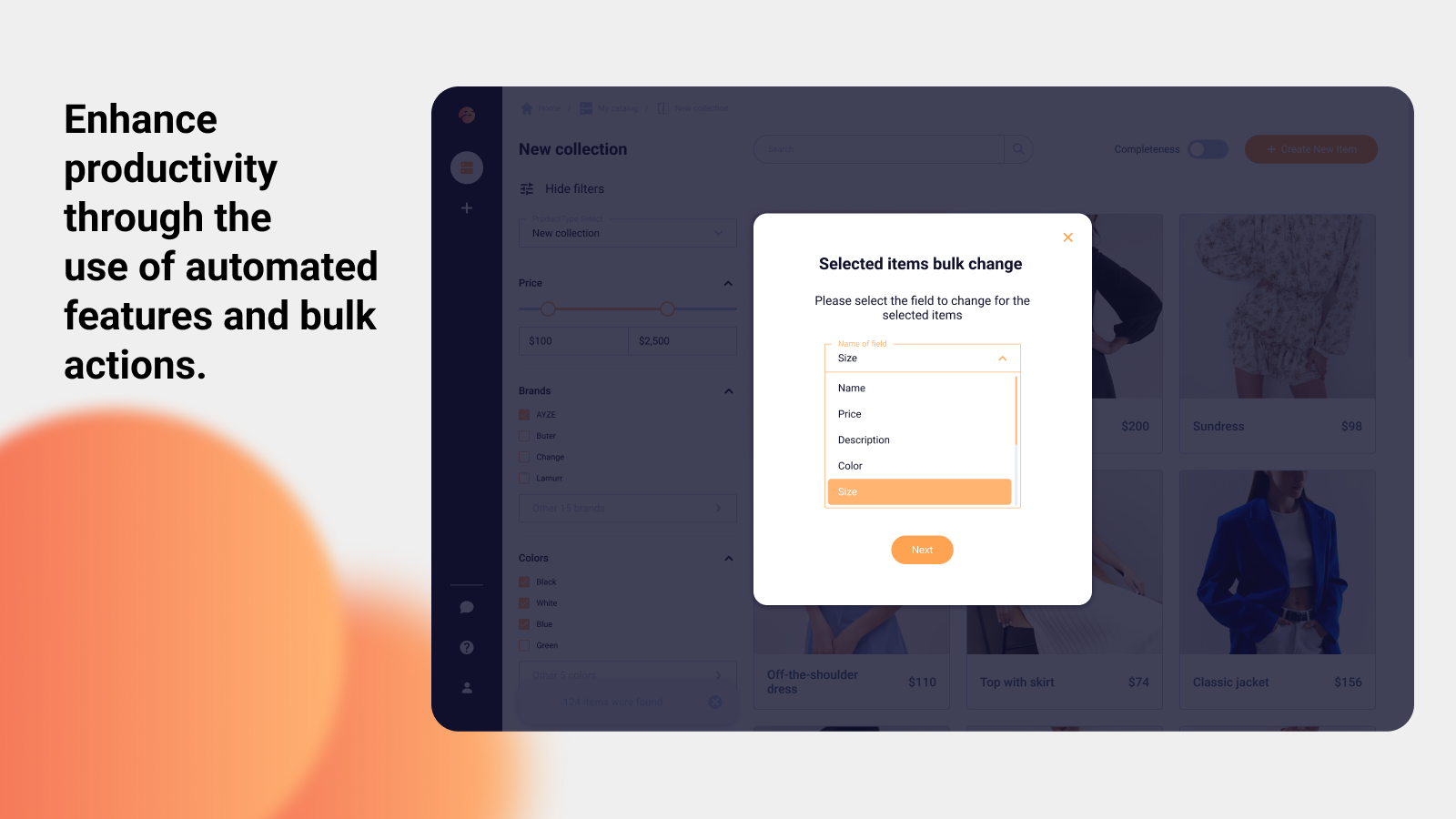
Thus, PCM and PIM, when used together, offer a comprehensive solution for managing and enriching product data, ensuring that every aspect of product information is not only accurate but also engaging for the customer.
Wrapping Up: PCM as the Silent Salesperson in the Digital Age
In a realm where customer choices are abundant, PCM stands as your silent salesperson, guiding and persuading customers through their buying journey. PCM encompasses a range of activities – from managing product data across various platforms to optimizing SEO for product pages, and from ensuring high-quality visuals to maintaining consistency in product information.
PCM can efficiently manage product data across multiple platforms, ensuring that whether a customer is browsing on a mobile device or a desktop, the information remains consistent and reliable. It plays a crucial role in optimizing SEO for product pages, making sure that your products don't just exist but are easily discoverable.
As we reflect on the importance of PCM, it becomes clear that it acts as a silent influencer in the customer's decision-making process. If you want to get this behind-the-scenes tool that can empower your business to present your products effectively, engage customers meaningfully, and thrive in the competitive digital marketplace, feel free to contact us, and try our Otomate product data management solution for free!




